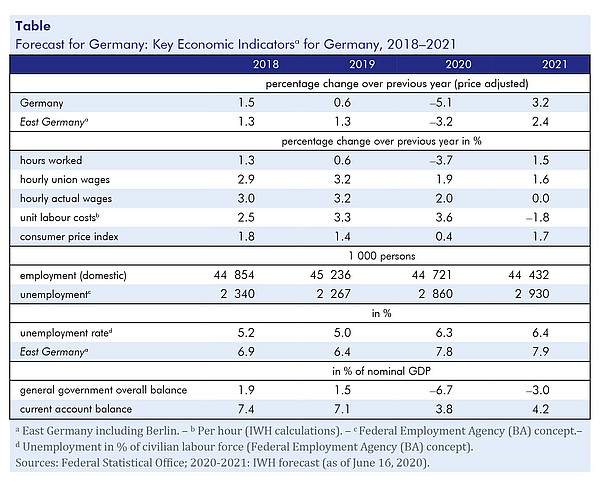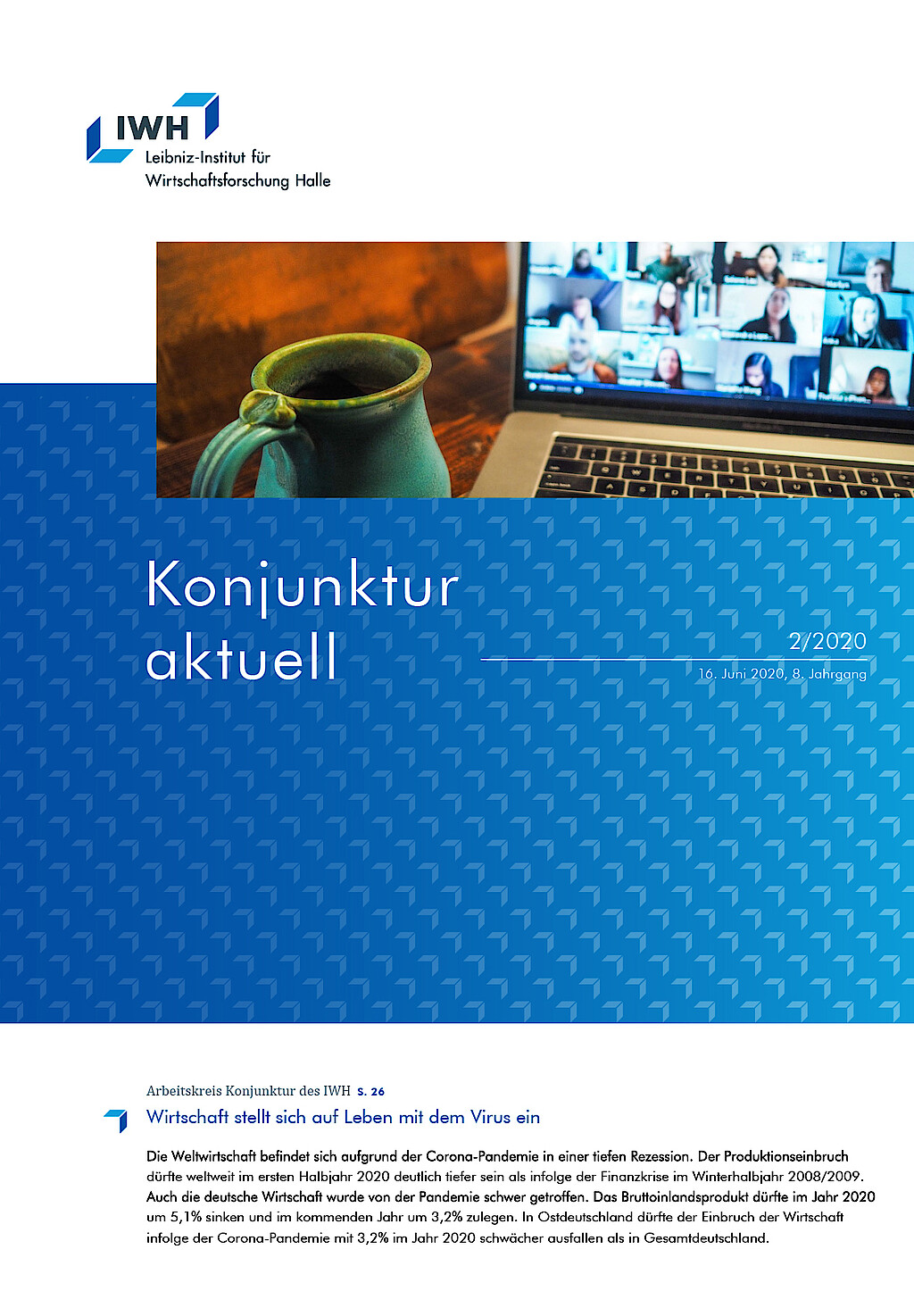The economy adapts to the pandemic

As governments around the world have restricted mobility and human interaction to contain the spread of COVID-19, the global economy was sent into a deep recession. Since May, many governments have started to lift some of the imposed measures. While the dynamics of the pandemic have decreased sharply in Asia and noticeably in the European Union, the United States are still grappling with rising infection numbers in some regions. Underpinned by the massive fiscal policy responses in advanced economies, financial markets have proven quite resilient so far. Nevertheless, the global production slump in the first half of 2020 will likely be considerably more severe than the decline in production following the financial crisis in the winter half of 2008/2009.
The German economy was hit hard by the pandemic. However, neighbouring countries in the euro area have often fared worse, while at the same time exhibiting higher infection and death rates. The trough of the recession is likely to be reached in the second quarter, says Oliver Holtemöller, head of the Department Macroeconomics and vice president at the Halle Institute for Economic Research (IWH): The epidemic receded in May and June, prompting restrictions to be relaxed successively. This forecast assumes an approximately constant number of active corona cases. Supported by economic policy measures, the economy is likely to recover, albeit slowly given the persistent high levels of uncertainty and anemic exports in the medium term. Gross domestic product is expected to fall by 5.1% in 2020 and increase by 3.2% in the coming year. The unemployment rate will increase sizably this year, from 5.0% in 2019 to 6.3%. Consumer prices in 2020 are likely to be only 0.4% higher than in the previous year. Although a number of measures to combat pandemics are currently increasing production costs, the lower energy prices and the reduction of VAT rates are more important. The strongly expansionary fiscal policy, together with the slump in production, will reduce the general government balance in 2020 to –6.7%.
Holtemöller expects the contraction of the economy to be likely less pronounced in East Germany than in Germany as a whole, not least because the number of infections is markedly lower here. “The relatively low exposure of economic activity in East Germany to the overall business cycle is also likely to contribute to a relatively moderate decline in economic activity”, he explains.. The main risk for this forecast is a second sharp rise in Corona infections in the northern hemisphere in autumn.
The full version of this forecast (Konjunktur aktuell: The Economy adapts to the pandemic, only available in German) contains three boxes:
Box 1: Effects of the Stimulus Package (German)
Box 2: Estimation of Potential Output (German)
Box 3: Implications of Public Finance Debt Rules during the Pandemic (German)
Publication
Brautzsch, Hans-Ulrich; Claudio, João Carlos; Drygalla, Andrej; Exß, Franziska; Heinisch, Katja; Holtemöller, Oliver; Kämpfe, Martina; Lindner, Axel; Müller, Isabella; Schultz, Birgit; Staffa, Ruben; Wieschemeyer, Matthias; Zeddies, Götz: Konjunktur aktuell: Wirtschaft stellt sich auf Leben mit dem Virus ein. Konjunktur aktuell, Jg. 8 (2), 2020. Halle (Saale) 2020.
Whom to contact
For Researchers

Vice President Department Head
If you have any further questions please contact me.
+49 345 7753-800 Request per E-MailFor Journalists

Internal and External Communications
If you have any further questions please contact me.
+49 345 7753-832 Request per E-MailIWH list of experts
The IWH list of experts provides an overview of IWH research topics and the researchers and scientists in these areas. The relevant experts for the topics listed there can be reached for questions as usual through the IWH Press Office.
Related Publications

Konjunktur aktuell: Wirtschaft stellt sich auf Leben mit dem Virus ein
in: Konjunktur aktuell, 2, 2020
Abstract
Die Weltwirtschaft befindet sich im Sommer 2020 in einer tiefen Rezession. Auslöser ist die Corona-Pandemie: Regierungen haben überall in der Welt eine Vielzahl von Möglichkeiten der Mobilität und des Zusammentreffens von Personen unterbunden. Etwa seit Mai werden die Restriktionen in etlichen Ländern wieder gelockert. Für den zeitlichen Verlauf der Rezession ist neben den Lockerungen vor allem das Krankheitsgeschehen selbst maßgeblich, das in Asien sehr deutlich und in der Europäischen Union spürbar zurückgegangen ist, kaum jedoch in den USA. Alles in allem dürfte der Produktionseinbruch in der Welt im ersten Halbjahr 2020 deutlich tiefer sein als infolge der Finanzkrise im Winterhalbjahr 2008/2009.



